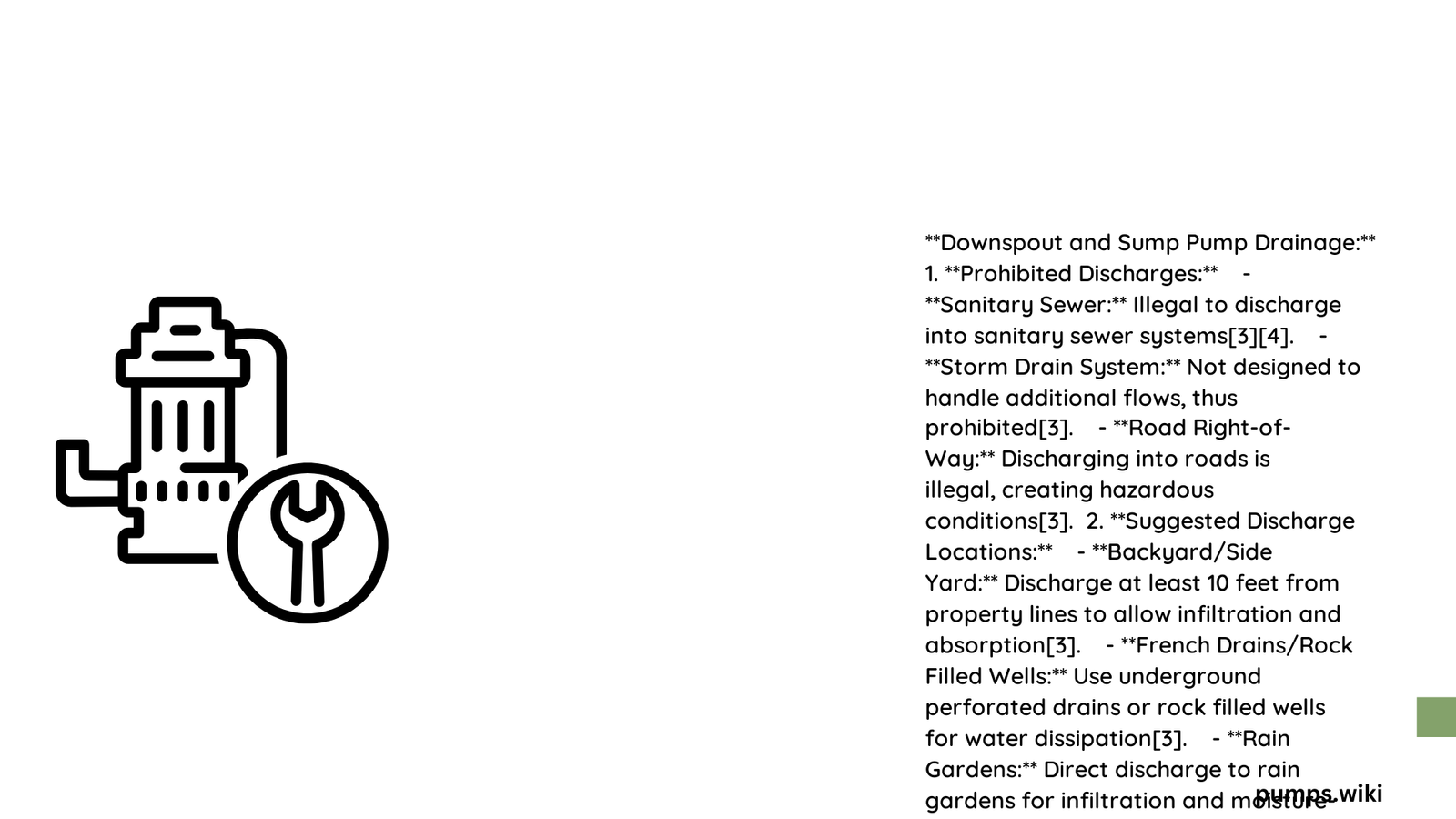Water management around your home’s foundation is critical for preventing structural damage and maintaining a dry, safe living environment. Effective downspout and sump pump drainage systems work together to redirect water away from your property, mitigating potential risks of basement flooding, soil erosion, and foundation deterioration. By implementing strategic drainage solutions, homeowners can protect their investment and ensure long-term structural integrity.
What Makes Downspout and Sump Pump Drainage Essential?
Proper water management is more than just a maintenance task—it’s a crucial defense mechanism for your home’s structural health. Downspouts and sump pump drainage systems serve as primary channels for redirecting excess water, preventing potential damage that could cost thousands in repairs.
How Do Water Drainage Systems Protect Your Home?
Water can be incredibly destructive when left unchecked. Here’s how drainage systems work to protect your property:
- Foundation Protection
- Prevent water accumulation near foundation walls
- Reduce hydrostatic pressure
-
Minimize soil erosion
-
Moisture Control
- Prevent basement flooding
- Reduce humidity levels
- Prevent mold and mildew growth
What Are the Key Components of Effective Drainage?
| Component | Function | Recommended Material |
|---|---|---|
| Downspout Extensions | Redirect water away from foundation | PVC, Aluminum |
| Underground Pipes | Transport water efficiently | Corrugated Plastic, PVC |
| Sump Pump | Remove accumulated water | Cast Iron, Submersible Pumps |
| French Drains | Manage groundwater | Perforated Pipes, Gravel |
How to Choose the Right Drainage Solution?

Selecting an appropriate drainage system depends on several factors:
- Soil Composition: Clay-heavy soils require more robust drainage
- Landscape Topography: Slope and grade influence water flow
- Local Rainfall Patterns: Frequency and intensity of precipitation
- Property Size: Determines system complexity
What Are Underground Drainage Techniques?
Underground drainage offers several advantages:
- Aesthetically pleasing
- Prevents tripping hazards
- Protects pipes from environmental damage
- Allows for more extensive water redirection
Recommended Underground Drainage Methods
- Perforated Pipe Systems
- Allows gradual water infiltration
- Reduces surface runoff
-
Supports landscape health
-
Dry Wells
- Collect and slowly disperse water
- Excellent for areas with high water tables
- Environmentally friendly solution
What Maintenance Practices Ensure Optimal Performance?
Regular maintenance prevents system failures:
- Monthly Inspections
- Check for pipe blockages
- Verify sump pump functionality
-
Clean downspout openings
-
Seasonal Considerations
- Winterize systems in cold climates
- Clear debris before rainy seasons
- Test backup power systems
How Much Does Professional Drainage Installation Cost?
Cost varies based on complexity:
- Basic Downspout Extensions: $100 – $500
- Underground Drainage Systems: $1,500 – $5,000
- Comprehensive Sump Pump Installation: $2,000 – $6,000
Expert Tips for Long-Term Water Management
- Use high-quality, durable materials
- Ensure proper slope in drainage pipes
- Consider professional assessment
- Invest in preventative maintenance
Conclusion
Effective downspout and sump pump drainage is an investment in your property’s longevity. By understanding and implementing strategic water management techniques, homeowners can protect their most valuable asset.
